Producers of EDM, House and many other forms of electronic music construct and build their material within a DAW (digital audio workstation). With numerous DAWs available, claiming to be superior in different areas, choosing which is best for an EDM / electronic music workflow can often be a daunting one. Logic Pro is a much-loved favorite across many areas of the industry.
So is it a good choice for EDM / House / Electronic Music producers? Yes, Logic Pro is good for Electronic Music because it has an intuitive interface that easily allows users to get ideas from their head into the DAW. It caters to a workflow that encourages creativity and can achieve high audio quality standards heard in modern EDM.
In this article, I will go through why Logic Pro is an excellent option for electronic music and the considerations you need to take to figure out whether Logic Pro is right for you.
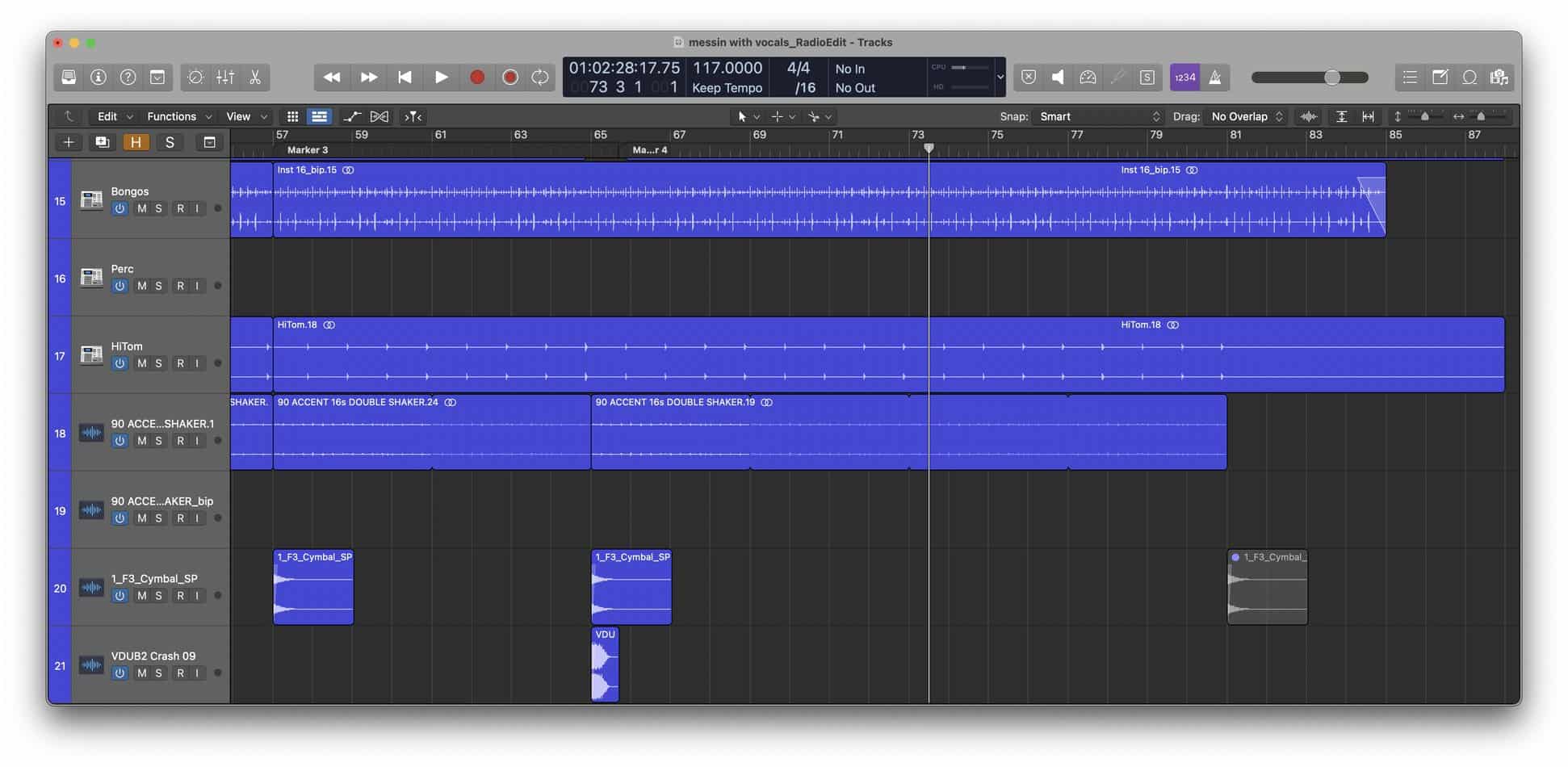
3 Reasons Why Logic Pro Is Good For Electronic Music/EDM
There are 3 reasons why logic pro is good for electronic music/EDM, they are:
- Streamlines Creative Production
- High Degree of Control
- Expansive Stock Content
1. Streamlines Creative Production
Logic Pro has been designed to streamline creativity and the process of developing production ideas. This is especially useful for making House / EDM / Electronic Music. Since genres like orchestral music usually focus more on melodic themes, the same idea can often be conveyed with any instrument, regardless of the actual sound. The production sound is often of equal importance with electronic music and sometimes more. Logic Pro allows the user to quickly experiment with different production sounds, which is essential for making Electronic Music.
2. High Degree of Control
Naturally, with the current production standard heard in modern EDM, it is not enough to release the rough demo you made in a day with Apple Loops and no mixing process. Thankfully, Logic is far more than just a tool to formulate rough ideas. With Logic’s tools, you can easily make music that competes with the industry standard of House, EDM, and other Electronic Music genres. However, to really compete with the top-level productions, you need at least a few third-party plugins. Saying this, the stock plugins that Logic provides are ideal for beginners as they give a production sound reasonably close to the industry standard.
3. Expansive Stock Content
This is one of the main appeals of Logic for beginners in particular. Those unfamiliar with making Electronic Music do not want to immediately spend hundreds on third-party software to get something listenable. Logic provides a mixture of stock library content, electronic and acoustic alike. Also, it gives some form of almost all of the plugins needed to make a professional-sounding EDM track. The quality may not compare to that of the third-party options, but you get a valuable selection of tools and content for the price you pay.
Best Logic Pro Plugins For EDM (Free & Paid)
One of the great benefits of Logic is the amount of stock content and plugins it comes with. For the price you pay, it offers some of the best value for money of all the DAWs available. While Logic does offer a basic version of everything you need, sometimes you need to invest more tools in taking your EDM to the next level. With a mixture of Logic and third-party plugins, you can produce great-sounding electronic music.
The Best Logic Pro Plugins for EDM are:
- Logic Pro Alchemy
- Xfer Records Serum
- FabFilter Saturn (Logic stock equivalent = Phat FX)
- FabFilter Pro L (Logic stock equivalent = Adaptive Limiter)
- Sonic Academy Kick 2 (Logic stock equivalent = Drum Synth)
- Xfer Records OTT
1. Logic Pro Alchemy (FREE – for Logic users)
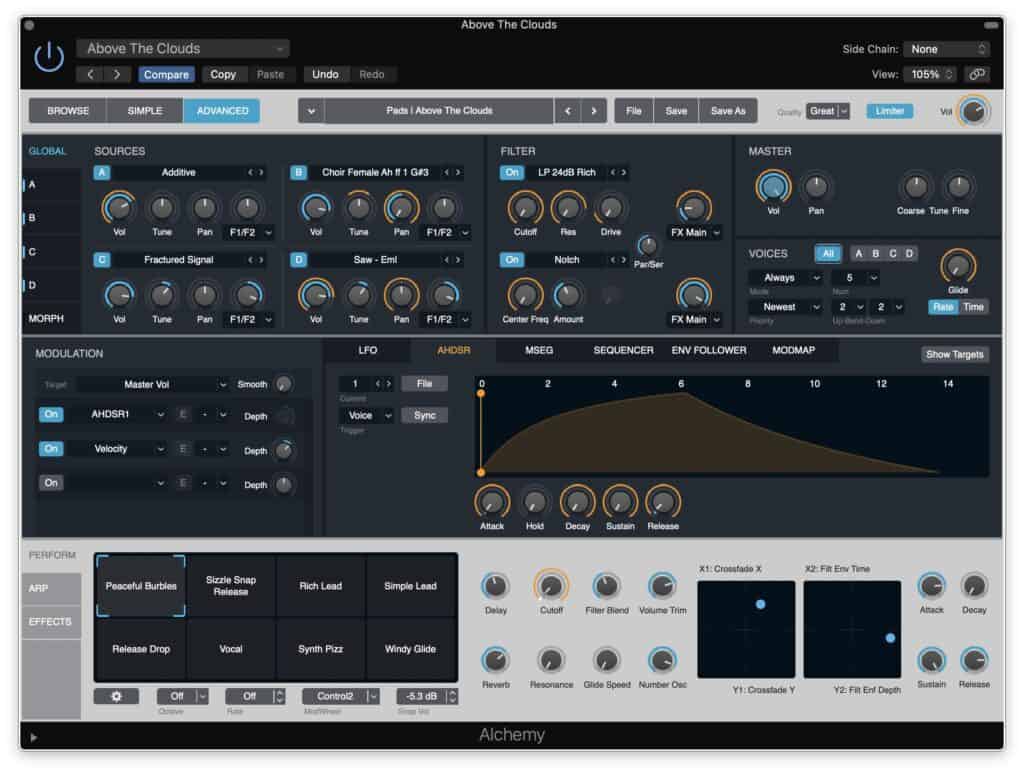
Before you even consider investing in a third-party synthesizer, you should explore Logic’s Alchemy. This is a stock plugin that comes free with Logic Pro. It allows you to do additive, subtractive, granular, and spectral synthesis and even acts as a sampler. It is an incredibly powerful tool for Electronic Music and is available to Logic users for free.
2. Xfer Records Serum
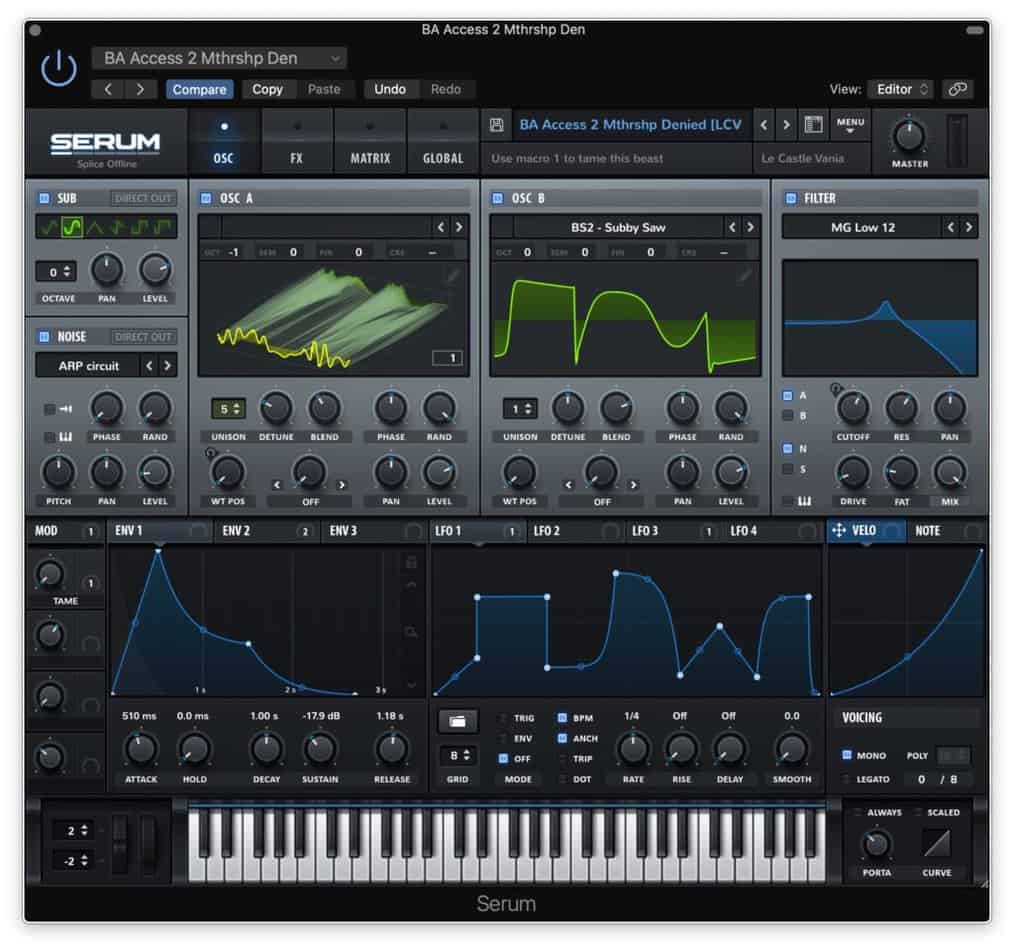
While Alchemy is a fantastic plugin, you might find that it cannot produce some of the tonal intricacies heard in modern electronic music. Furthermore, the overall sound of Alchemy is not necessarily premium quality. For a plugin that does tick both of these boxes, you should look towards Serum. It is arguably one of the most groundbreaking plugins to be released in the last 10 years. The sound of Serum can be heard across all genres of Electronic Music, and sound effects heard in Hollywood movies and industry-leading AAA games. It really is one of the most versatile plugins available today.
3. FabFilter Saturn / Logic Phat FX
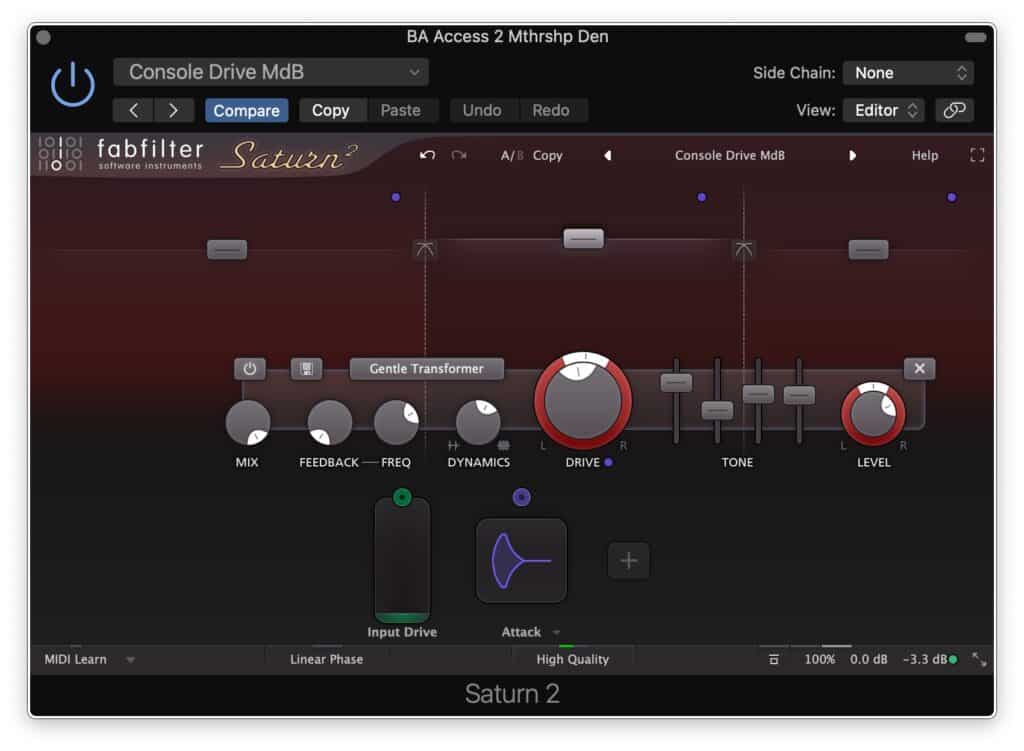
To make your EDM have that rich gargantuan sound heard in the industry, you need to use saturation. Many different plugins can do this, but FabFilter Saturn is often considered one of the best. If you are just starting out and don’t want to pay premium prices yet, you can use Logic’s Phat FX plugin to achieve a similar effect. Just look for the “Soft Saturation” setting in the distortion module.
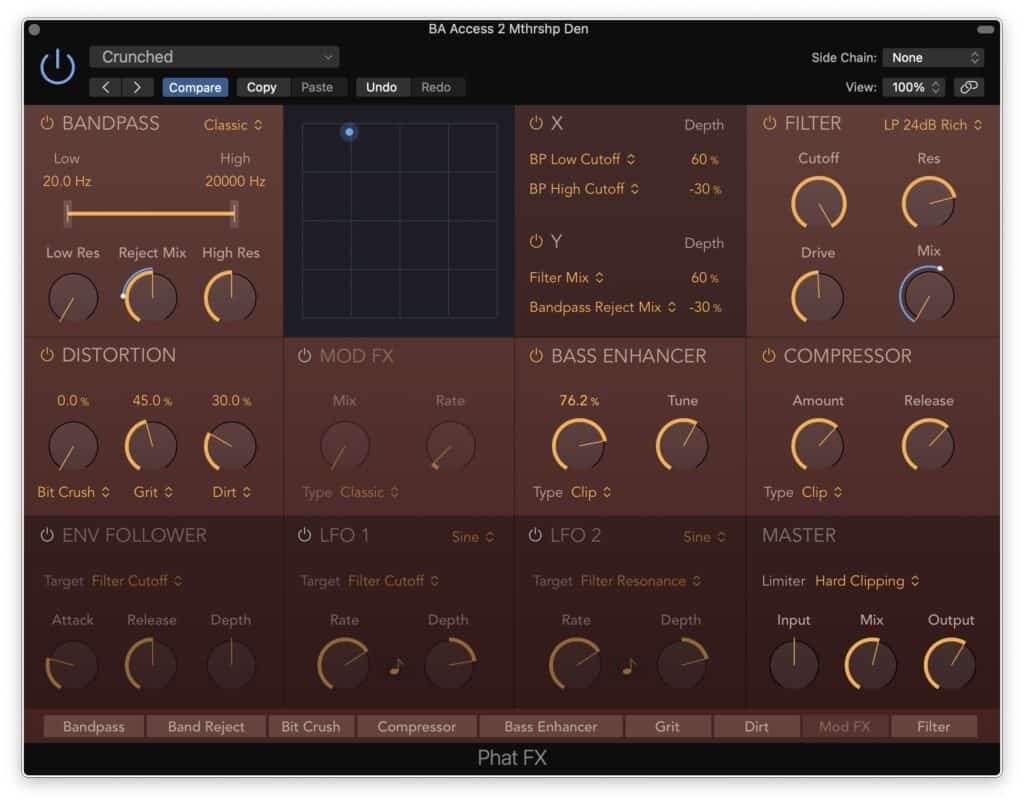
4. FabFilter Pro-L2 / Logic Pro Adaptive Limiter
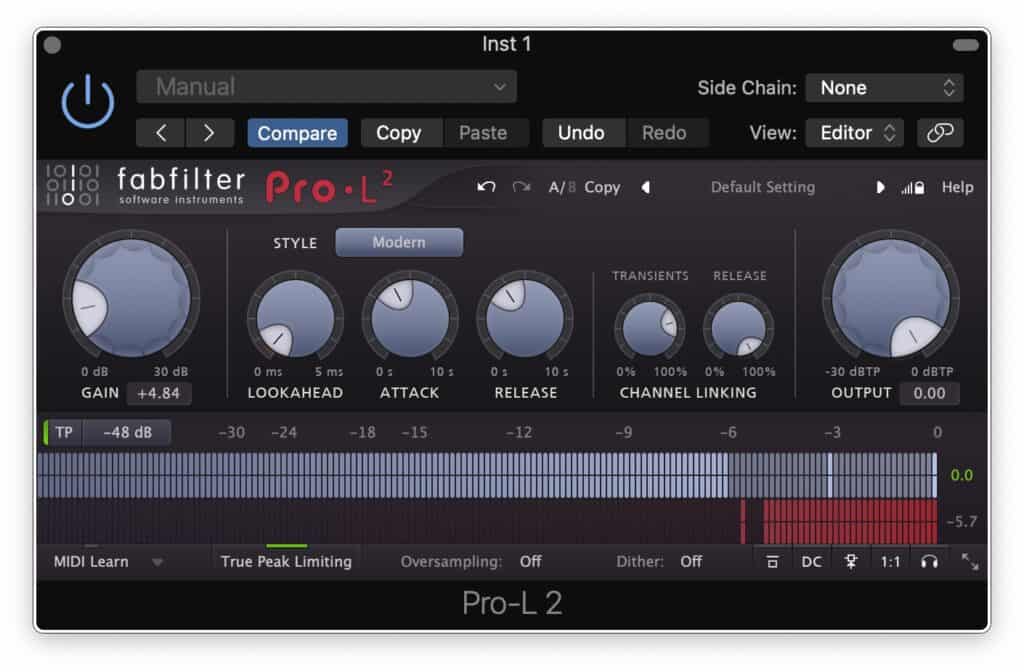
Another critical factor of EDM and House is loudness. Among other things, a limiter will help you maximize your music’s loudness and power. FabFilter Pro-L2 is a top-notch premium limiter, but many others are available from companies like Waves, Izotope, and more. If you do not want to invest lots of money just yet, Logic Pro’s Adaptive Limiter will also do a good job.
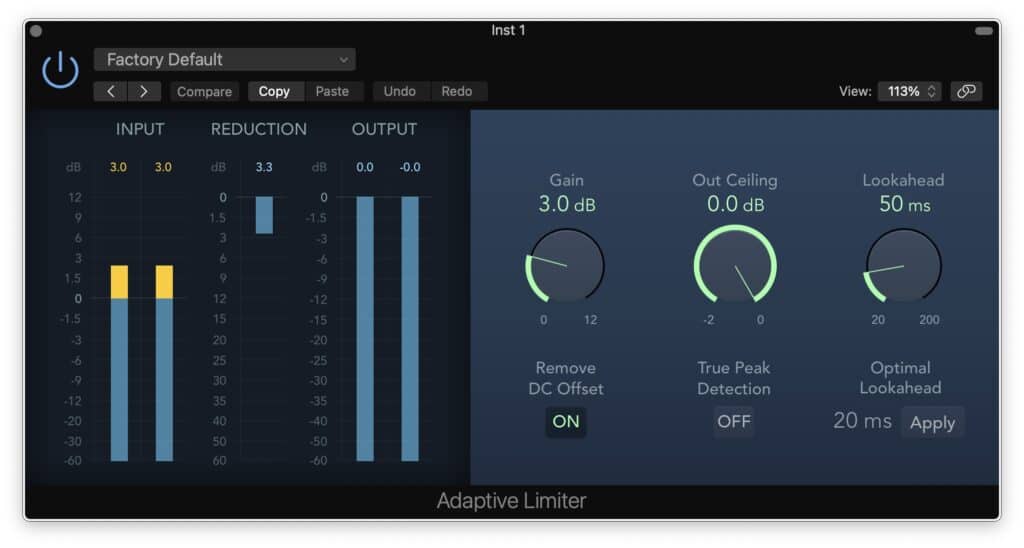
5. Sonic Academy Kick 2 / Logic Pro Drum Synth
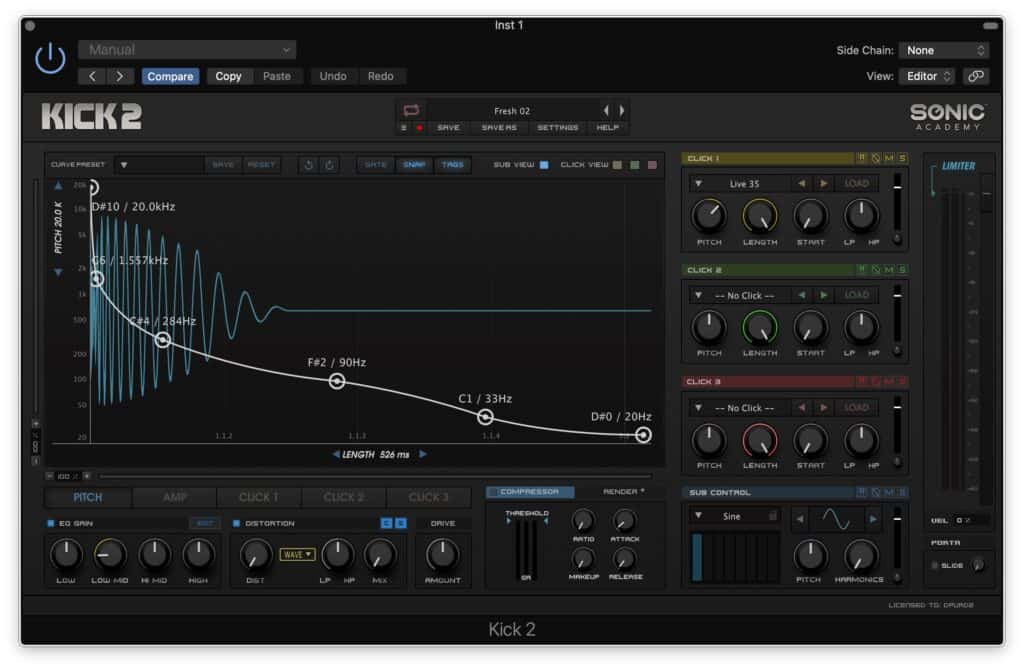
One of the central features of any EDM or House track is the kick. Since it is often the loudest and most important element, a high-quality sound is essential. Kick 2 will give you an electronic kick drum sound that is industry quality when it leaves the plugin. Logic has a similar stock plugin called Drum Synth if you are on a budget. However, the quality and versatility of this plugin do not remotely compare to that of Kick 2.
6. Xfer Records OTT (FREE)
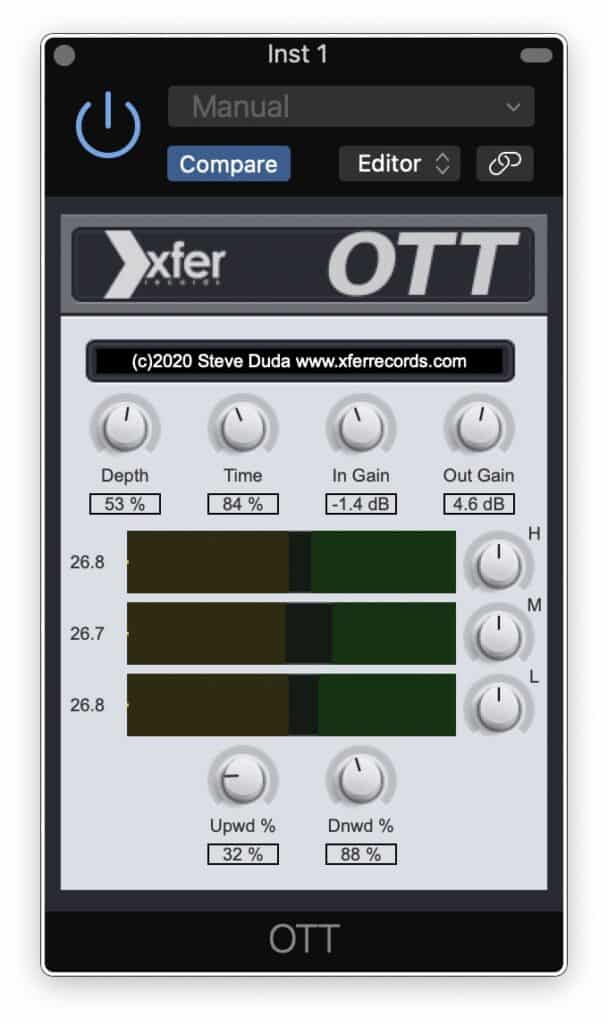
Multi-band compression is a common process used to achieve the consistent, in-your-face, bright sound heard in modern EDM and House. There are many plugins and different ways of doing this, but Xfer’s OTT plugin has to be regarded as one of the simplest and most intuitive. It can be used sparingly for a subtle injection of energy or excessively if you want energy that is over-the-top (hence the name). Other plugins such as Logic’s Multipressor theoretically do the same thing, but they lack the simplicity of OTT. There is no reason not to pick up OTT with a free price tag.
For more information, check out our other articles about Logic Pro:
Do Any Famous EDM Producers Use Logic Pro?
Yes, there are famous EDM producers who use Logic Pro, such as Disclosure, Fox Stevenson, and sources suggest David Guetta, Calvin Harris, and Diplo all have Logic Pro in their arsenal.
These types of producers will likely have a selection of different DAWs installed for different jobs. Disclosure, for example, uses Logic for their primary production DAW and then uses Ableton for tasks related to stretching/looping audio.
Problems with Logic Pro for Electronic Music / EDM
When producing in Logic, you are more or less confined to the horizontal linear timeline-based workflow, which is excellent for songwriting, sound design, or film music. Logic does have the functionality to work with loop triggering, but it is a relatively new feature and not very powerful.
There is other software like Ableton, for example, that predominantly uses a vertical loop-based workflow. Since almost all EDM and House is loop-based music, many people find the Ableton production method more suitable. Furthermore, Logic only being available on Mac is another reason why electronic music producers on PCs will often turn to Ableton.
Best Alternative DAWs for Electronic Music
As previously mentioned, Ableton is a favorite among EDM producers worldwide. Arguably, it could be said that Ableton is more popular than Logic for EDM producers. Although this is partly because Logic is not available on PCs, that is not the full reason. If you ask Mac users that make EDM / House what their main DAW is, you will probably find that the majority say Ableton.
For those who want a Logic alternative but still prefer the linear timeline based workflow, there is the option of FL studio. This DAW, which was originally only for PCs, is used by many producers of all different styles of Electronic Music and EDM. There is not much it does that Logic cannot do, but it has a slightly different layout and method of doing things that some people may prefer.
The other alternative option for Electronic Music producers is Cubase. This DAW is considered far more professional than FL Studio and is often described as being more powerful than Logic. Drum and Bass producers such as Noisia and Mefjus and producers like Ian Kirkpatrick and Zedd all use Cubase.
Final Thoughts
If you use Logic Pro currently or want to use it in the future, rest assured that it is an excellent tool for all types of EDM, House, and Electronic Music. I personally have been using it for many years, and I never feel restricted. It is software that you can become familiar enough with that electronic music production after a while becomes second nature. Everything from arranging a composition to instantiating plugins can be done at a fast pace.
I am also a common user of Ableton. Although it is not my main DAW, I can definitely see how it would be a great option for people exclusively producing EDM or House. If I was as familiar with it as I am with Logic, I would probably turn to it much more frequently to make electronic music. I have been on the receiving end of peer pressure to switch to Ableton for many years, but I have always felt more at home with Logic. One day, I aspire to make one finished piece of music in Ableton.
References
https://sound7.co.uk/blogs/daw-talk/what-programs-do-edm-artists-use
https://www.recordingconnection.com/blog/2019/12/01/who-uses-logic-pro/
https://www.quora.com/Is-Logic-Pro-X-good-for-house-music-production
Recent Posts
QuickTime is a vital app for many Mac users, and if you’ve recently bought a new microphone, you might wonder how to use it optimally. QuickTime cannot record audio content if it doesn’t have...
Every microphone leaves a unique signature on the quality of its output. If you’re a podcaster trying to melt your way into your audience’s hearts, a muddy, distorted recording won’t cut it....
